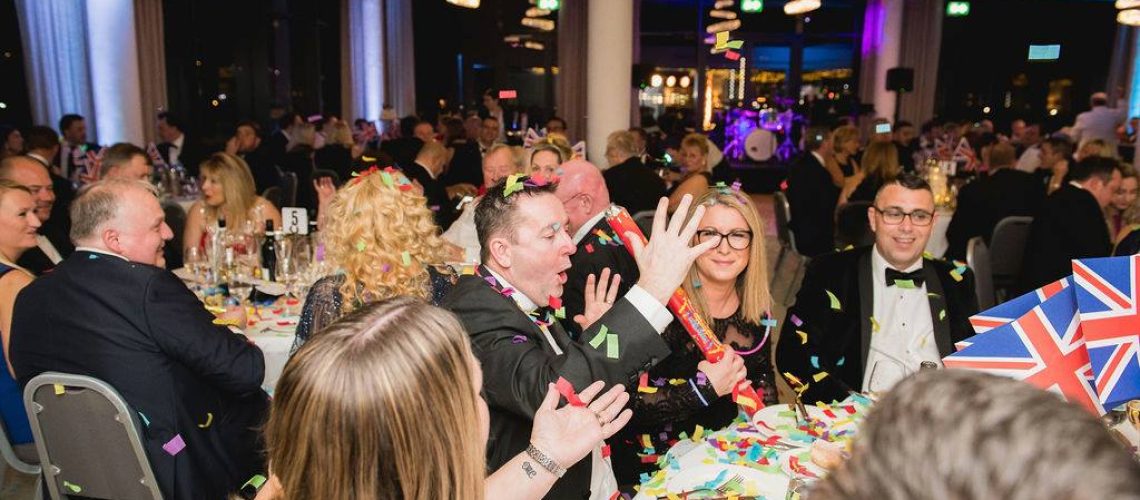When organising your fundraising dinner, or any event for that matter, the most important decision you will make is the venue.
Many of your other event decisions will depend on the venue so it’s important you get it right!
Feeling a little daunted? Don’t be! We’ve got you covered. Here’s our guide to picking the right venue for your fundraising dinner, from a previous Events Coordinator at a multi-national hotel chain.
1.Leave yourself plenty of time.
Popular venues get booked up well in advance, so we’d recommend securing your venue around 9-12 months before the event date. Not only does that mean that you’re more likely to be able to get your first choice, you’re also leaving yourselves plenty of time to organise everything else, like advertising your event, giving your attendees plenty of time to clear their diary as well as have the pick of the bunch when it comes to suppliers like caterers, decorations, photographers etc should they be required.
2.Location, Location, Location
Where are your guests travelling from – Home, work? If it’s a local event, you’ll want to make sure that the event location is central to these areas. If you’re planning a larger scale event with attendees coming from far and wide, then your location will depend more on hotels and public transport services close by. Will guests be driving? You might want to also check that the venue has plenty of on-site, ideally free parking (or included in the ticket price).
You also might like to consider a way of making it as easy as possible for attendees to find the event, perhaps with an app. There’s no mood-killer like people arriving in drips and drabs, late, arriving to a half empty room with little atmosphere. Get as many people to arrive on time as possible with an app with GPS, directions, maps with pins and maybe even calendar alerts for the week before and the day itself.
3.Minimum Numbers and Maximum Capacity
It might sound obvious, but you can’t pick a venue with a maximum capacity of 100 attendees, if your guestlist has 250 people on it. Likewise, you don’t want to be booking a room that holds 500 people if you’re likely to have 200 attending (back to that mood-killer half empty room). Aside from this, the venue will have strict fire and safety regulations, which mean you need to be accurate with your numbers, as well as for F&B reasons.
There will be Food and Beverage minimums (for both in-house catering and outside caterers), so make sure that the minimum number for that room, or minimum spend, is inline with previous events that you’ve held. If this is your first dinner, then perhaps consider agreeing 75% of your guest list. Most venues will let you increase numbers (depending on room size) up until the week before the event itself, but this is something you should discuss with them when you go for a walk around.
At the end of the day, you don’t want to be paying for dinners that don’t end up getting bought by your guests, so be as accurate as you can with your numbers early on.
4.What services does the venue itself offer?
Some services and amenities you will be able to organise in-house. Larger venues and those like hotels will generally be a one-stop-shop for all of your event needs. Other venues may require you to utilise other suppliers. Here are some things to bear in mind when viewing venues.
Catering
Some venues will insist on you using their in-house catering services. In this case, they will likely have several menus at different price points for you to choose from. If the venue doesn’t have it’s own catering team, then perhaps it has a kitchen that you can use for your own choice of caterers. If the venue doesn’t have a kitchen, then you’ll be looking for a caterer that come come equipped with everything they need. Some venues who usually insist on events using their in-house team will generally be flexible when it comes to food they can’t create authentically, for example many hotels will have a list of preferred caterers that provide Indian or Caribbean cuisine.
Bar
Some venues, like hotels, will push for you to use their bar and have all drinks bought from themselves. If they do allow you to bring your own alcohol, they will usually charge a corkage fee. If they don’t have their own bar then this could be something you ask your caterers to provide, or something you do yourself if the venue are licensed for you to do so.
Chair Hire
You will need to check if the venue offer chairs, tables and linen within the price of hiring or whether this is an additional cost. Some venues may not even have these available through them directly, so again may be something you can organise through your chosen caterer.
Clean Up
Who is responsible for cleaning up? Most hotels will do this for you as they have a dedicated team. But if you are choosing a hall or community space, you will likely have to do the cleaning up yourselves, in which case make sure this important job gets delegated so people know they are responsible. You don’t want to get landed with a clean-up bill post event.
AV
Are there plenty of electrical sockets, in convenient locations for any AV requirements you may have? If you’re having a band then it’s important that the stage area will have the appropriate number of electrical points. If you’re having a presentation at any point, then where is the screen going to go and where is the projector? The venue might have all of this on site ready for you to use, or this may be something you need to organise externally with an AV company. It’s wise to try and get any suppliers of this nature to come and scout out the venue once you think you’ve made a decision.
5. Layout
It might seem a bit early to be thinking about this, but if you book a venue and then find that the shape of the room doesn’t work with the number of tables you need (imagine one table being hidden in the corner of an L-shaped room?!) or maybe you’ll have a high flow of traffic when guests are arriving, but no foyer available for welcome drinks to provide a space to congregate. Where is the stage going to go, if you need one? Is it near electrical points? Where will the bar be? When you are looking at potential venues on paper, try to get floor plans so you can visualise how everything will work.
6. Ambience
How much money are you putting aside for venue dressing and decorations? If your budget in this area is low, then you’ll be needing to choose a venue whose natural decor mirrors your event. The better the venues natural state, the less you will have to do. Many chain hotels have all the services, but have quite basic decor or less character. This is good in that it gives you a blank canvas to build on, if you have the budget for that. There will also be venues with features full of character, for example exposed brick and beams, or whitewashed minimalist walls. It all depends on your event and the kind of feel you want.
7. Accessibility
Most venues now have to legally be accessible to all. There may however be instances where this is not the case, e.g. in older listed buildings with steps and stair cases that cannot be updated or renovated in a way that could make them accessible. You will need to bear in mind the needs of your guests and notice any aspects of potential venues that might contravene these needs.
8. Sound
If you’re having a band play, or a DJ, or maybe a compere then making sure everyone can hear them is paramount. Always check the acoustics of your venue. What’s worse than being on a table at the back of a room, and not being able to hear what the person on the microphone is saying? Half the room laughing and clapping, and the other half looking bewildered is not conducive to a successful event.
On the other hand, you don’t want your guests going home with a headache and sore throat because they’ve had to shout at each other across the table to make themselves heard over the noise. Does the room have a low ceiling? Cosy and intimate atmosphere, but things will seem louder. Or maybe it’s a huge venue with high ceilings and walls for days – Sound is going to find it harder to travel to all the guests and things are going to echo. Again, bring your AV guy if you’ve got one to check this stuff out for you.
9. Visit!
When you’ve narrowed down your selection to 1 or 2 venues, make sure you do a walk through at the venue, with one of their Events Coordinators so you can run through everything and make sure it will all work. They will be more than happy to give you a tour of the venue, give you detailed information on how previous events have worked and what layout they used. They’ll show you menus and maybe even let you try the food and wine. Always remember to call and book an appointment rather than just dropping in, so they’ve got the time you need to discuss things fully.
10. Flexibility On Dates
Once you’ve decided on a venue, being flexible on date may help you get a discounted price. If you’re able to offer up 3 potental dates, and one of them is a less popular date or day and thus one the venue will be keen to fill, then you’re more likely to get a great price on the room hire as well as price per head for catering.
And there you go! Our guide to picking the right venue for your fundraising dinner. Hopefully you are feeling a little less daunted, and a bit more excited to get started on all your event planning!


